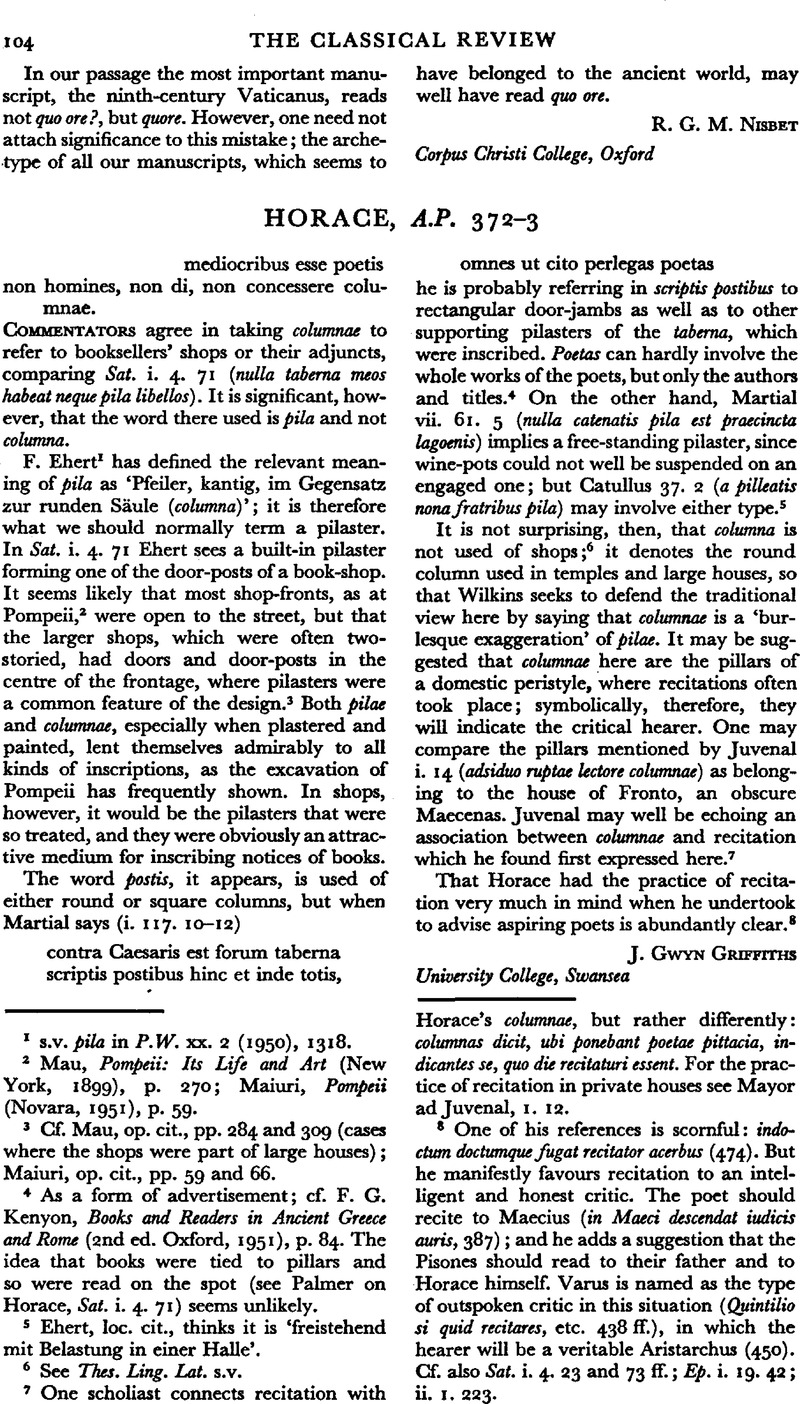No CrossRef data available.
Article contents
Horace, A.P. 372–3
Published online by Cambridge University Press: 13 February 2009
Abstract

- Type
- Review Article
- Information
- Copyright
- Copyright © The Classical Association 1960
References
1 s.v. pila in P.W. xx. 2 (1950), 1318.
2 Mau, , Pompeii: Its Life and Art (New York, 1899), p. 270; Maiuri, Pompeii (Novara, 1951), p. 59.Google Scholar
3 Cf. Mau, op. cit., pp. 284 and 309 (cases where the shops were part of large houses); Maiuri, op. cit., pp. 59 and 66.
4 As a form of advertisement; cf. Kenyon, F. G., Books and Readers in Ancient Greece and Rome (2nd ed.Oxford, 1951), p. 84. The idea that books were tied to pillars and so were read on the spot (see Palmer on Horace, Sat. i. 4. 71) seems unlikely.Google Scholar
5 Ehert, loc. cit., thinks it is ‘freistehend mit Belastung in einer Halle’.
6 See Thes. Ling. Lat. s.v.
7 One scholiast connects recitation with Horace's columnae, but rather differently: columnas dicit, ubi ponebant poetae pittacia, indicantes se, quo die recitaturi essent. For the practice of recitation in private houses see Mayor ad Juvenal, 1. 12.
8 One of his references is scornful: indoctum doctumque fugat recitator acerbus (474). But he manifestly favours recitation to an intelligent and honest critic. The poet should recite to Maecius (in Maeci descendat iudicis auris, 387); and he adds a suggestion that the Pisones should read to their father and to Horace himself. Varus is named as the type of outspoken critic in this situation (Quintilio si quid recitares, etc. 438 ff.), in which the hearer will be a veritable Aristarchus (450). Cf. also Sat. i. 19. 23 and 73 ff.; Ep. i. 19. 42; ii. 1. 223.




